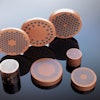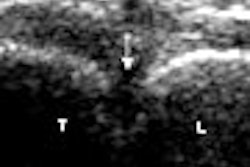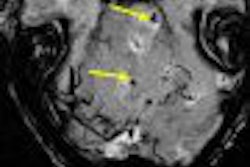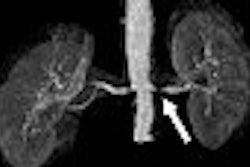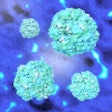Adults with sickle cell disease (SCD) scored worse on neurological tests and showed a prevalence of MRI abnormalities, which included neuropsychological dysfunction and silent central nervous system infarction, in a recent study by California researchers.
In their study, Dr. Elliott Vichinsky and colleagues set out to determine the extent of neuropsychological impairment, the prevalence of MRI abnormalities, and their relationship in neurologically asymptomatic adult SCD patients compared to matched controls.
Vichinsky is the medical director of the hematology/oncology program at the Comprehensive Sickle Cell Center at Children's Hospital & Research Center in Oakland, CA. He presented his group's research at the 2007 American Society of Hematology meeting in Atlanta.
"About 38% of sickle cell patients had imaging abnormalities," Vichinsky said. "Both silent infarcts and hippocampal atrophy predicted decreased neurocognitive function."
The patient population consisted of 138 (out of 150) SCD patients and 37 healthy controls. Sixty-seven of the 138 SCD patients and 12 control subjects underwent standardized brain MRI to assess atrophy and lesions. Volumetric analysis was done to evaluate hippocampal volumes. Cognitive tests included the Wechsler Adult Intelligence Scale and the Woodcock-Johnson Tests of Achievement.
More than half (63%) the SCD patients had an abnormal MRI or neuropsychological dysfunction, 38% had atrophy and/or ischemic lesions, and 18% had ischemic lesions only, according to the results. The average hippocampal volume for SCD patients was 2,200 µL versus 2,400 µL for the controls. In neurological testing, SCD patients scored significantly lower than the controls in processing speed, reading fluency, math fluency, visual tests, and number sequencing tests.
"Low hemoglobin levels are associated with lower neurocognitive scores, indicating that reduced oxygenation and neuronal loss result in cognitive impairment," Vichinsky said.
In their meeting abstract, Vichinsky and colleagues stated that their results support "the importance of a transfusion trial to improve (neuropsychological) function." Transfusion therapy is used in SCD patients to correct the low oxygen-carrying capacity caused by severe anemia and improve microvascular perfusion by decreasing the proportion of sickle red cells in the circulation, Vichinsky explained in an online article (Information Center for Sickle Cell and Thalassemic Disorders, January 2001).
By Edward Susman
AuntMinnie.com staff writer
February 6, 2008
Related Reading
Ultrasound points to stroke risk in sickle cell anemia, September 1, 2006
Children with sickle cell disease show bone mineral deficit, October 17, 2005
Copyright © 2008 AuntMinnie.com


